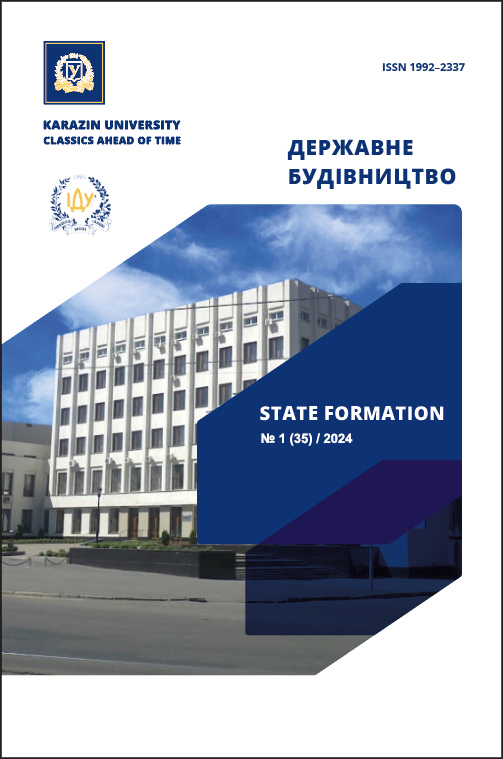Application of the us experience in the USА of artificial intelligence in ensuring the national information security of Ukraine
Abstract
The pace of artificial intelligence (AI) development continues to astound. Already, the world has divided into two camps: some calling for a halt to the advancement of powerful AI systems, while others announce integrations of AI-powered chatbots like "ChatGPT" into their platforms. With AI's pervasive spread and influence across nearly all spheres of human activity worldwide, new challenges and significant threats arise in implementing doctrines of national information security for all countries without exception.
The article discusses the process of total globalization, where national information security becomes a leading factor in ensuring conditions for the realization of national interests and a state's ability to overcome crises in the face of external aggression. Timely and effective measures in managing information security by the state can mitigate threats to the socio-economic and political life of the country. Our focus should particularly be on information security in the United States, as our state's main and strategic partner, including in the realm of information security. Considering that the rapid development of artificial intelligence creates new challenges and opportunities for national information security, studying and borrowing the experience of leading actors in this field, including the United States, is extremely important for our state to ensure the protection of its national interests in the information sphere and information sovereignty.
Downloads
References
Artificial Intelligence (AI). U.S. Department of State. URL: https://www.state.gov/artificial-intelligence/#nav__primary-nav
Artificial Intelligence and Democracy, URL: https://il.boell.org/en/2022/01/06/artificial-intelligence-and-democracy
Artificial intelligence and foreign policy decision-making. URL: https://calhoun.nps.edu/handle/10945/7993
Artificial Intelligence and Politics. URL: https://vocal.media/futurism/artificial-intelligence-and-politics
Eric Schmidt // National Security Commission on Artificial Intelligence. URL: https://www.nscai.gov/about/commissioners/schmidt
Pretorius B., van Niekerk B. (2016). Cyber-Security for ICS/SCADA. Int. J. Cyber Warf. Terror, 6, 1–16.
The Future of AI: How Artificial Intelligence Will Change the World.
URL: https://builtin.com/artificial-intelligence/artificial-intelligence-future
Gbur, Z.V. (2022). Fundamentals of information security of the state in the conditions of war. Russian-Ukrainian war (2014-2022): historical, political, cultural-educational, religious, economic and legal aspects, 868–872. DOI: https://doi.org/10.30525/978-9934-26-223-4-106 [in Ukrainian].
Disinformation and Artificial Intelligence: (In)visible Threat of Modernity.
URL: https://cedem.org.ua/analytics/dezinformatsiya-shtuchnyi-intelekt/ [in Ukrainian].
Legal regulation of Artificial Intelligence. Voice of Ukraine.
URL: http://www.golos.com.ua/article/372783 [in Ukrainian].

